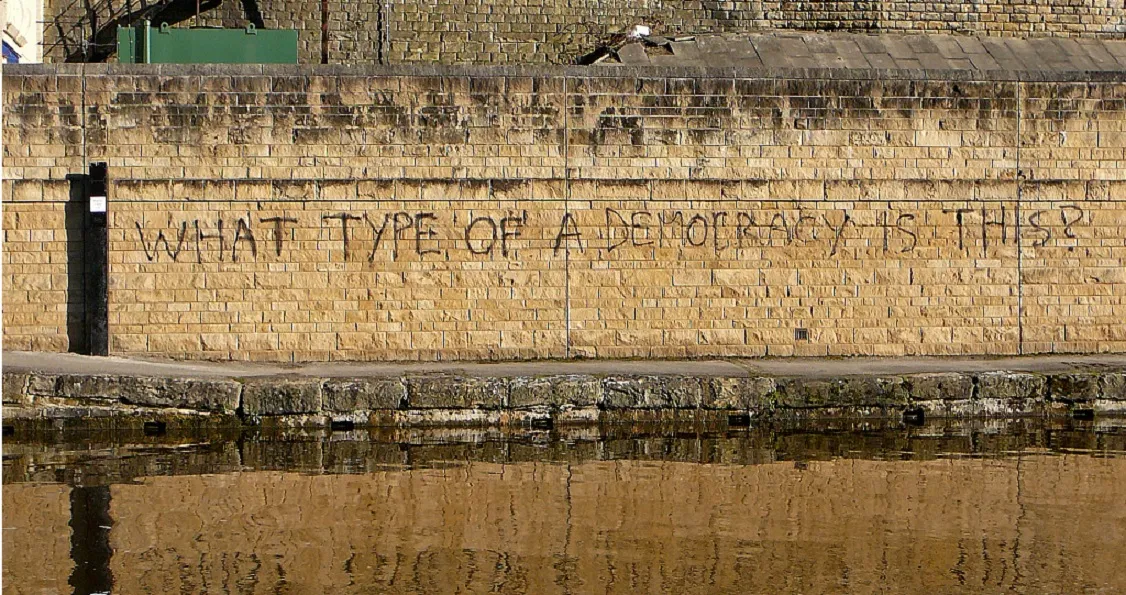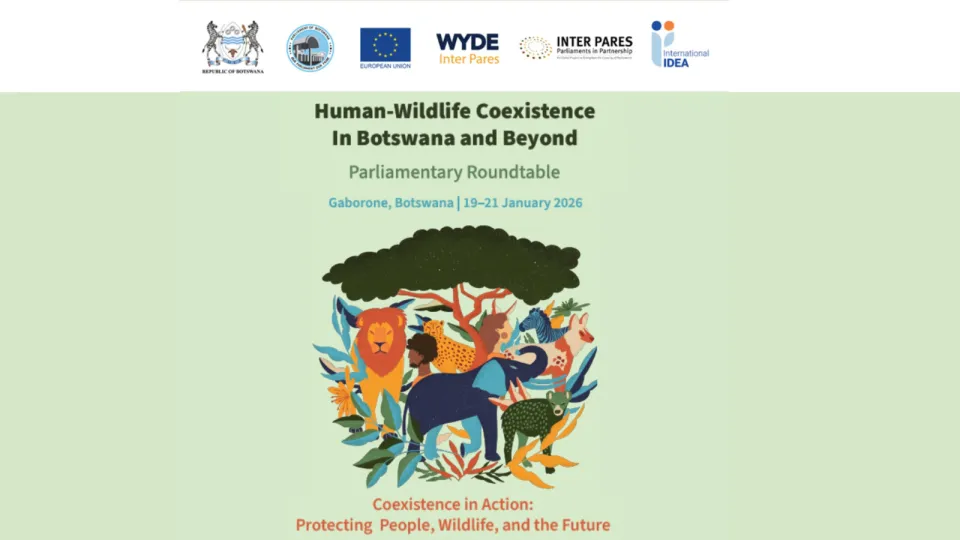Escaping the slide towards authoritarianism in new democracies alerts from the Western Balkans

Disclaimer: Views expressed in this commentary are those of the staff member. This commentary is independent of specific national or political interests. Views expressed do not necessarily represent the institutional position of International IDEA, its Board of Advisers or its Council of Member States.
Since the wars in former Yugoslavia two decades ago, the Western Balkan region has made a considerable departure from its violent past. Out of its constituent entities, new states were created, and new democracies began to emerge. Although there are noted irregularities, free and fair elections take place, and power is transferred from one party to the next without many glitches. In their European, democratic trajectory, countries such as Slovenia and Croatia are leading the way, both now integrated within the European Union (EU). Slovenia particularly is entrenched as a relatively consolidated democracy. However, the rest of the Western Balkan countries—Albania, Bosnia and Herzegovina, Kosovo, Montenegro, North Macedonia and Serbia—are falling behind, either stuck in their political trajectory or making incremental progress towards European integration.
Europe’s challenges are Western Balkan challenges
Europe’s main threats relate to the rise of populist, nativist or extreme right political parties, according to International Institute for Democracy and Electoral Assistance (International IDEA) titled “The Global State of Democracy 2019: Addressing the Ills, Reviving the Promise”. The report analyses democratic trends, like how the increasing mismatch of the demands of the electorate on one hand, and the failure of mainstream political parties to respond to those demands on the other, has led to a creeping disconnect between people and parties. The simultaneous rise of populist, nativist and extreme right parties should be understood in this context.
Secondly, the global report cautions that in some countries their regimes are taking steps to withdraw from liberal practices and norms of democracy such as civil liberties. The chronic political infringements in the judiciary, the media and the civil society space, are another set of challenges identified in countries such as Poland, Hungary, Turkey, etc.
Thirdly, the report also highlights the dangers of democratic backsliding and the lure of authoritarian rule. Aspiring autocrats are emulating practices seen in Russia, Turkey and beyond, and striving to aggrandize power in the hands of a few. From their point of view, democracy is a sluggish system and frustrates their ambition for more power. By contrast, authoritarian rule is more efficacious and helps them to cut unnecessary red tape imposed by democratic systems.
These are some of Europe’s challenges with democracy today. Cases in point are countries such as the Netherlands, Austria or Germany with the rise of extreme right parties, to Poland, Hungary, or Bulgaria with the regimes’ assault on liberalism, to Turkey with its deep slide back into autocratic rule.
In this regard, at least, although most Western Balkans countries are not part of the EU yet, they do share a lot of the above commonalities with the rest of Europe. Democratic backsliding is easily discerned in several countries in the region. According to International IDEA’s report, Serbia, for instance, is one of six countries in Europe to have experienced democratic backsliding since 2010 (the other ones being Hungary, Poland, Romania, Turkey and Ukraine). Moreover, there are serious challenges with civil liberties—regimes in countries such as Albania, Serbia and, until a couple of years ago, North Macedonia, have made repeated attempts to reign on freedom of speech and freedom of media.
Today, therefore, these challenges are universal and apply to the whole of Europe (and beyond) indiscriminately. However, there is one difference: while the democratic backsliding and other related woes seen in EU countries occur in the context of consolidated democracies, the challenges experienced in the Western Balkan countries are brewing in conditions of much weaker and more fragile democracies. That is why the propensity to damage democracy in this region is potentially graver. Which in turn makes this a uniquely Western Balkan problem.
The Western Balkan’s very own hurdles
According to the report of International IDEA, all the countries of the Western Balkans, without exception, are classified as democracies. In that sense they share many commonalities with the mature democracies of the West. However, upon closer scrutiny one will see that the intricacies of the democratic system in countries such as for example Sweden, Denmark or Switzerland, differ to a great degree with those in the Western Balkan countries. What are the differences?
Democracy is not black or white. It comes in shades. Especially in nascent and fragile democracies, democratic versus authoritarian regimes share a buffer zone; the line between them two is not clearly delineated. Rather, democracy should be viewed as a continuum, or a specter, alongside which there is a great array of countries with stronger or weaker democratic systems.
Along this continuum of democracy, most of the consolidated democracies in Europe—mainly in Western and Northern Europe—score highly on conduct of clean elections, civil liberties, checks on government, or civil society participation. They are consolidated democracies because their systems build upon legacies from 5-6 decades ago or, in some cases, a century or more ago. It follows that their systems are potentially more resilient to temporary political upsets. That is why although the current wave of democratic backsliding or the surge of populism are certainly worrying ailments, the hope is that the democratic systems will manage to overcome them without much long-lasting damage.
By contrast, in the Western Balkans this is where the glitches of democratic resilience become apparent. While the region tries to live up to a system of governance similar to the consolidated European democracies, the democratic performance in the Western Balkans is weaker and more haphazard. Only 20 years ago, most countries of the region were submerged in wars and violent conflict. They have since built relatively stable democratic institutions, but the legacy of the past continues to haunt further progress. This is certainly the case for Bosnia and Herzegovina, which resembles an artificially induced organism that is barely kept alive, or Kosovo whose independence continues to be contested daily by Serbia.
In addition, most governments of the region are stained by practices of state capture, corruption and clientelism, which corrode democratic consolidation. Furthermore, when regimes vie for even more power by assaulting civil liberties, interfering in the judiciary or attacking media freedoms, suddenly the democratic trajectory of the Western Balkans seems worryingly precarious. International IDEA’s report values them as democracies, but unlike the consolidated democracies Western and Northern Europe, there is one crucial difference. While the performance of consolidated European democracies is mainly measured on a high scale, the performance of the Western Balkan regimes is firmly rooted in the mid-range category. This means that, in the context of nascent democracies with a recent violent past, the precipitous fall for the countries of the region can be more deadly.




